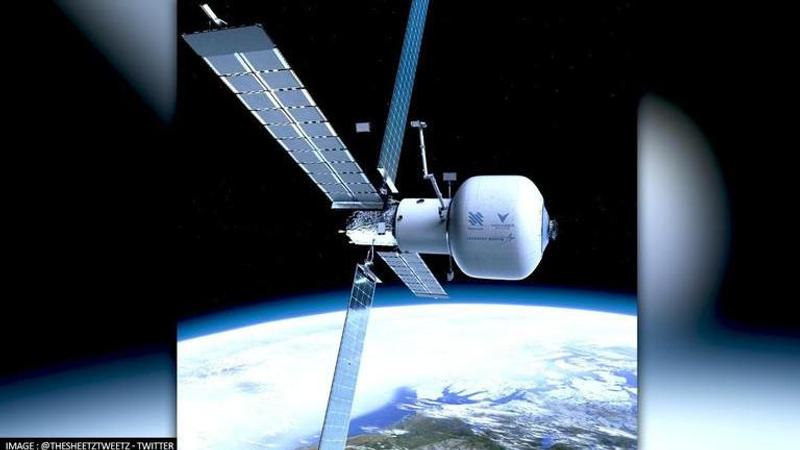Published 16:39 IST, October 22nd 2021
'Starlab': Nanorocks introduces new private space station; to be launched by 2027
The mission is being led by Nanorocks that has collaborated with Voyager Space and Lockheed Martin and promises to add value to sovereign astronaut missions.

Upping the low-Earth activities, private space companies Nanoracks, Voyager Space and Lockheed Martin announced, on October 21 their plans to launch an orbital research facility by 2027. Dubbed the ‘Starlab’, this new space station will also serve as the first commercial laboratory and provide thrust to space tourism. This new announcement might also incite some competition as another company named Axiom Space also has plans to launch its own four space modules in the coming years.
The mission is being led by Nanorocks that has collaborated with Voyager Space and Lockheed Martin and promises to add value to sovereign astronaut missions by enabling science and manufacturing beyond Earth.
Space station to serve multiple purposes
The next generation Starlab, as per the companies, will be a multi-purpose laboratory by serving as a research and manufacturing hub besides being a tourist destination. In an official press release, it was revealed that the new outpost will include a large inflatable habitat designed and built by Lockheed Martin along with a metallic docking node and a power and propulsion element. Moreover, the Starlab will also be equipped with a large robotic arm for servicing cargo and payloads, and a state-of-the-art laboratory system to host comprehensive research, science, and manufacturing capability.
Detailing about the development, the press release further stated, "To meet U.S. government, the international space agency, and commercial needs in space, these industry leaders will develop Starlab specifically to enable the growing space economy and meet pent-up customer demand for space services such as materials research, plant growth, and astronaut activity".
A report by Space.com suggested that the space module of the Starlab will have an internal volume of 12,000 cubic feet, which is slightly less than the current outpost, the International Space Station (ISS) which has a volume of 32,333 cubic feet.
The private race to low-Earth orbit
The low-Earth orbit is seeing an increment in competition among private space companies as many entities have shown interest in launching their own space stations. Companies like Sierra Space and Jeff Bezos' Blue Origin have similar plans whereas another company Axiom Space is eyeing the installation of its own space module to the ISS by 2024 and another three by 2027, reported Space.com.
Besides, the ISS is likely to retire by the end of this decade and to ensure a smooth transition to other outposts, NASA has even started a Commercial LEO Destinations (CLD) project which will make strategies for the same.
Image: Twitter/@thesheetztweetz
Updated 16:39 IST, October 22nd 2021



